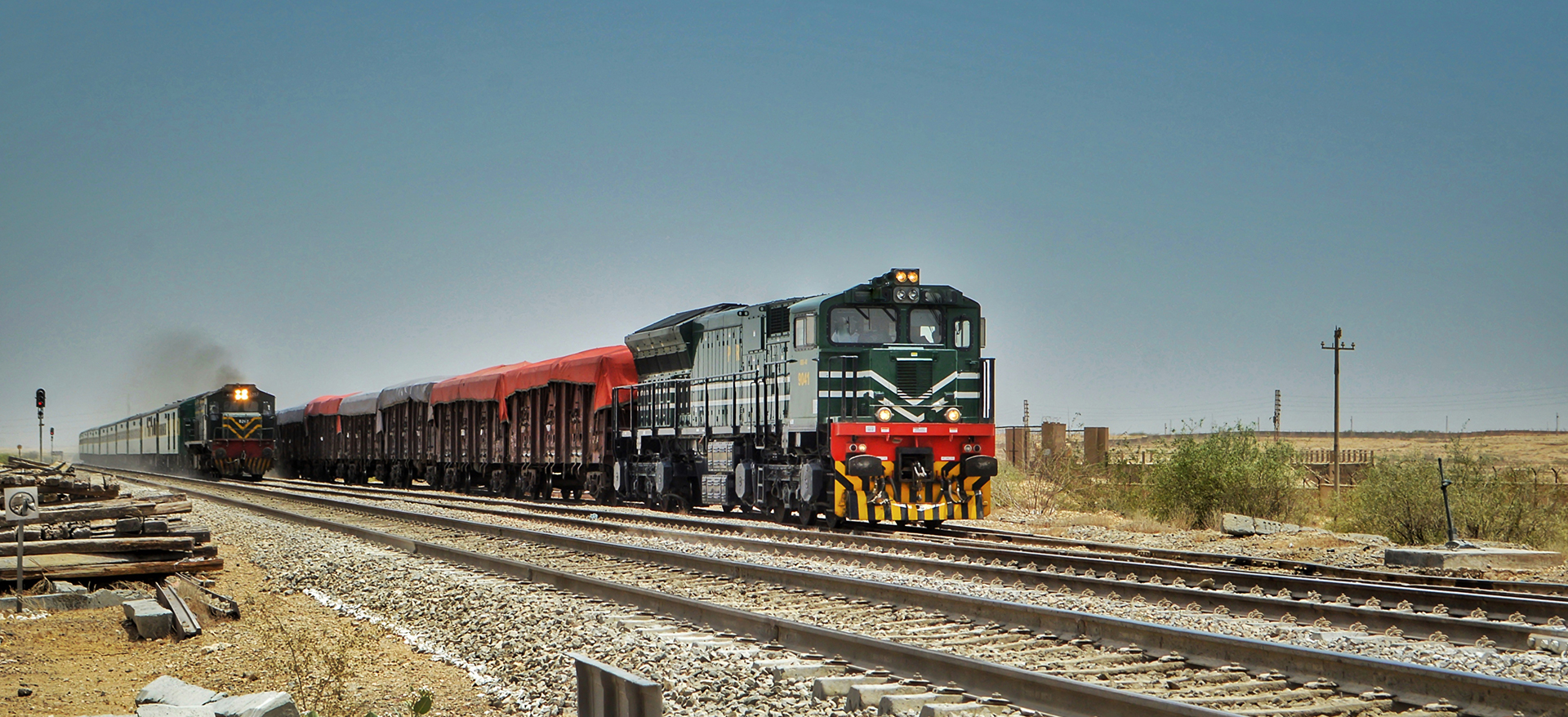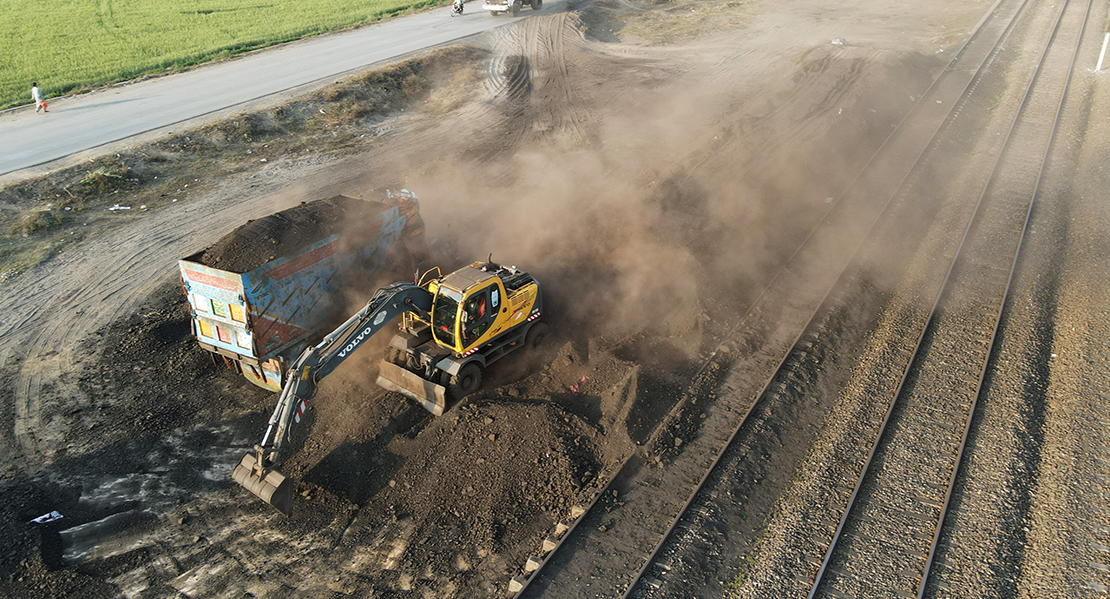
The ML-1 Project: A Vital Lifeline For Pakistan's Economy Under CPEC
Author - Ovais Ali Khokhar
As the Founder and CEO of the House of Elaan and Ovaisco Group, and Chairman of the Pakistan Research Center for a Community with Shared Future (PRCCSF), I am deeply invested in the development and prosperity of Pakistan. In this pursuit, the China-Pakistan Economic Corridor (CPEC) plays a pivotal role, and within CPEC, the ML-1 project stands out as a vital lifeline for our economy.

What is the ML-1 Project?
The ML-1, or Main Line 1, is the backbone of Pakistan's railway network, connecting Karachi in the south to Peshawar in the north. The ML-1 project aims to upgrade and dualize this crucial track, improving its capacity, speed, and safety. This includes:
This project will upgrade and dualize the Main Line-1 (ML-1) from Karachi to Peshawar and Taxila to Havelian. It will also lay a new track with an improved subgrade for 160 km/h and increase the speed from 65-105 km/h to 120-160 km/h.
The project is estimated to cost US $6,806 million and will be financed through the Chinese Government Concessional Loan (GCL).
The project is expected to create 24,000 jobs during construction. The project is being implemented by the China-Pakistan Economic Corridor (CPEC) Authority.
As of October 2023, the project is 70% complete. The project is expected to be completed in 2024.
Impact of the ML-1 Project on Pakistan's Economy
- Economic growth:
The project is estimated to generate over $25 billion in economic activity and create approximately 24,000 jobs during construction. This will stimulate economic growth and create new employment opportunities across the country.
- Improved transportation:
The upgraded and dualized track will allow faster and more efficient movement of goods and passengers. This will reduce transportation costs, improve supply chains, and boost trade.
- Increased trade with China:
The dry port near Havelian will create a seamless connection between Pakistan's railway network and China's Belt and Road Initiative. This will facilitate increased trade and investment between the two countries.
- Regional development:
The project will improve connectivity and access to markets for several underdeveloped regions along the ML-1 route. This will promote regional development and create new economic opportunities for local communities.
Beyond the Economy: The ML-1 Project's Social Impact
- Improved safety:
The upgraded track will include modern safety features, reducing the risk of accidents and making railway travel safer for passengers.
- Reduced travel time:
Faster trains will mean shorter travel times, allowing people to spend less time commuting and more time with their families and loved ones.
- Enhanced connectivity:
Improved connectivity will create new opportunities for people to travel between different parts of the country, fostering cultural exchange and national unity.
CPEC - A Wider Region and Vision
- Boosting trade and investment:
CPEC will facilitate the flow of goods and services between China and Pakistan, as well as other countries in the region. CPEC will also attract foreign direct investment and create new business opportunities for local enterprises.
- Improving infrastructure and energy:
CPEC will upgrade and expand the existing infrastructure and energy sectors in Pakistan, which are vital for its economic growth and social development. CPEC will also help Pakistan overcome its chronic power shortages and diversify its energy sources.
- Enhancing security and stability:
CPEC will strengthen the strategic partnership and mutual trust between China and Pakistan, which are both facing security challenges in the region. CPEC will also promote peace and cooperation among the neighboring countries, such as Iran, Afghanistan, and India.
- Promoting regional integration and development:
CPEC will foster regional integration and development by linking China and Pakistan with other countries along the BRI route. It will also contribute to the achievement of the United Nations Sustainable Development Goals (SDGs) and the vision of a shared future for mankind.
Shared Future Bazar - Testimonial of Commitment and Prosperity
As per the importance of the CPEC ML-1 Project. I have initiated Shared Future Bazar (SFB) in my latest project The Magnus Mall. An entire floor is dedicated to foreign enterprises and welcoming businesses from across the globe, particularly those connected to the Belt and Road Initiative (BRI) to open outlets in Shared Future Bazar (SFB). This strategic decision aims to create a platform for these businesses to showcase, promoting trade opportunities and fostering deeper economic ties between nations.
The ML-1 project is a testament to the strong partnership between Pakistan and China. Its successful completion will be a major milestone in our country's development journey, leading us towards the way for sustainable and inclusive growth.
Together, we will build a stronger and more prosperous Pakistan for all.
